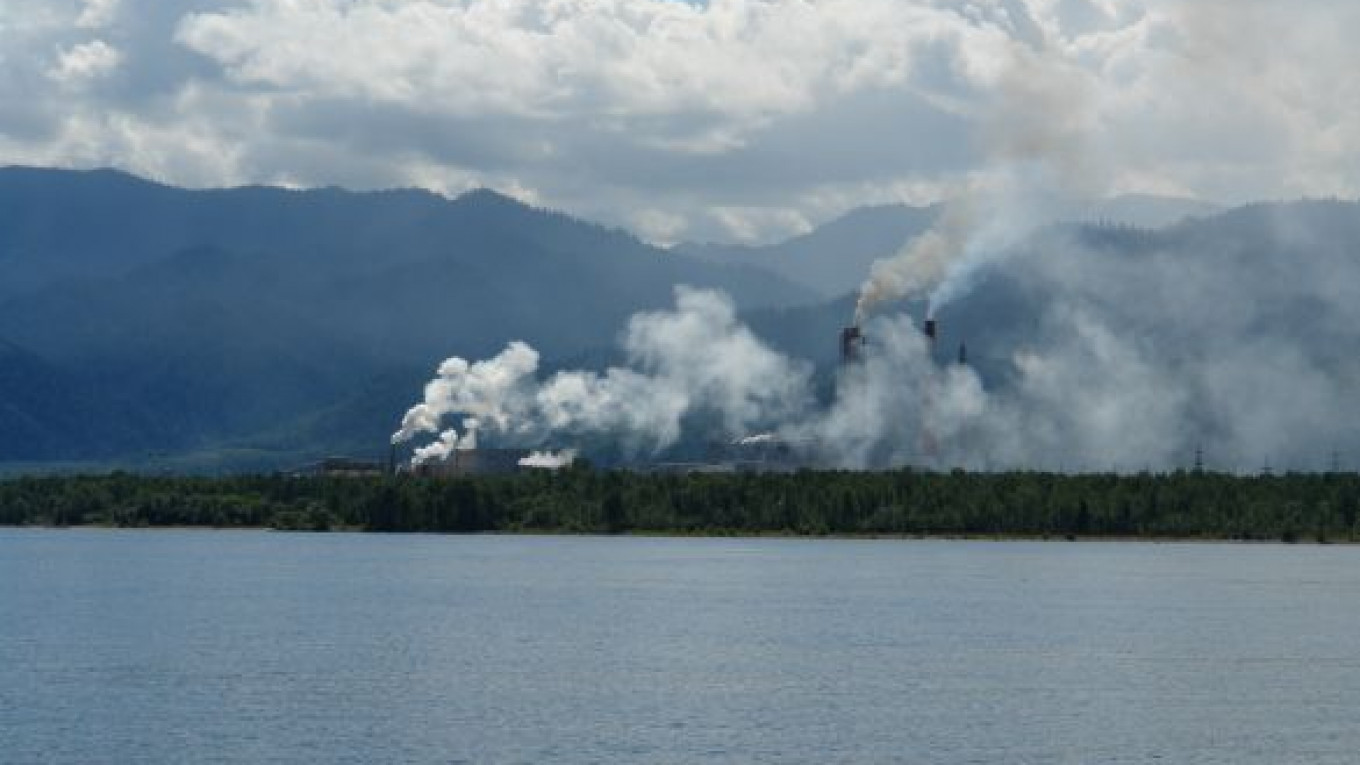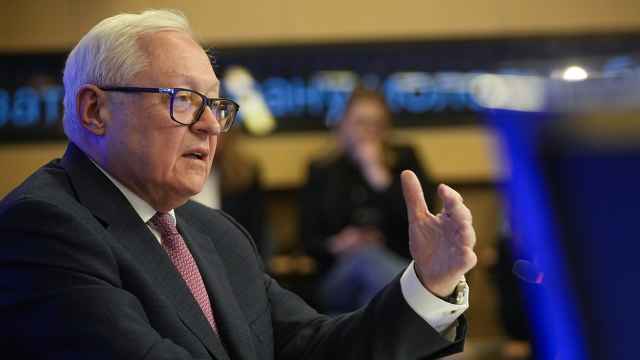Managers at the Baikalsk Pulp and Paper mill are drawing up plans for closure if the controversial factory does not win a renewal of its license to release effluent into Lake Baikal next month.
The mill’s current license to release waste from producing lucrative bleached kraft pulp into Baikal expires on August 15.
But officials at the Natural Resources and Environment Ministry said at a meeting with VEB bank, which has been tasked with drawing up options for modernizing the financially struggling factory, that the ministry will not issue a renewal, Vedomosti reported Thursday.
The management has formed a working group with local officials to draw up an action plan in the event of stoppage, and the staff at the plant has already been notified of possible layoffs.
The mill, long a bete noire of Russian environmentalists, was mothballed in 2008 over concerns about pollution it was releasing into the lake.
But then-Prime Minister Vladimir Putin ordered the reopening of the mill in January 2010, and it resumed open-cycle production in June that year.
At the time, the decision was cast as an effort to save about 1,500 jobs dependent on the plant, but another motive was military. The Baikalsk plant is Russia’s only producer of refined cellulose products, which are needed for rocket fuel used in Topol M intercontinental ballistic missiles.
Even that rationale has been questioned, however.
One former defense ministry official told Vedomosti on Thursday that bleached pulp is widely and cheaply available on the global market and that during previous stoppages at the mill, the small amount needed for rocket fuel was easily obtained from Brazil.
The mill, which is 51 percent owned by Continental Invest, a group controlled by businessman Nikolai Makarov, and 49 percent by the Russian government, is technically bankrupt and has been under administration since 2010.
State-owned VEB is believed to be preparing to buy the debt from the plant’s main creditors, Alfa Bank and Oleg Deripaska’s Basic Element, at the government’s request.
A Message from The Moscow Times:
Dear readers,
We are facing unprecedented challenges. Russia's Prosecutor General's Office has designated The Moscow Times as an "undesirable" organization, criminalizing our work and putting our staff at risk of prosecution. This follows our earlier unjust labeling as a "foreign agent."
These actions are direct attempts to silence independent journalism in Russia. The authorities claim our work "discredits the decisions of the Russian leadership." We see things differently: we strive to provide accurate, unbiased reporting on Russia.
We, the journalists of The Moscow Times, refuse to be silenced. But to continue our work, we need your help.
Your support, no matter how small, makes a world of difference. If you can, please support us monthly starting from just $2. It's quick to set up, and every contribution makes a significant impact.
By supporting The Moscow Times, you're defending open, independent journalism in the face of repression. Thank you for standing with us.
Remind me later.






